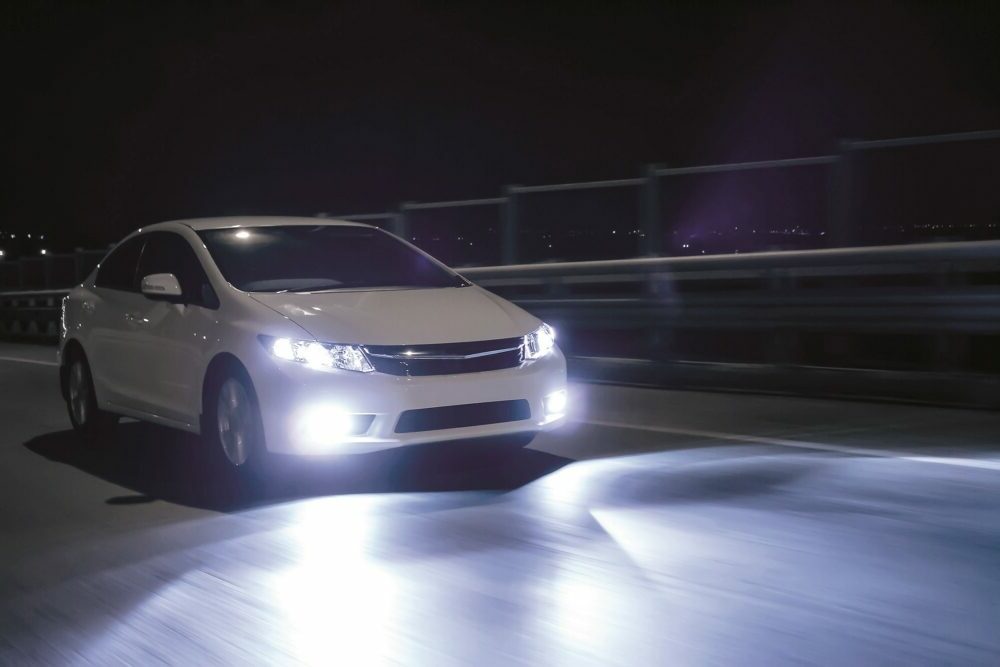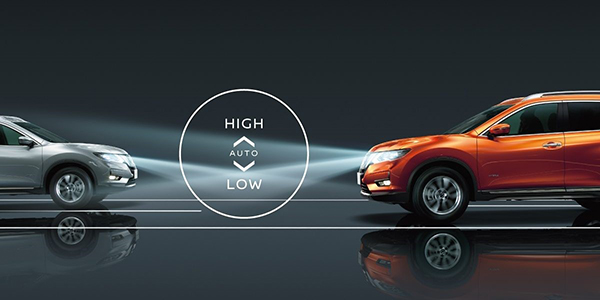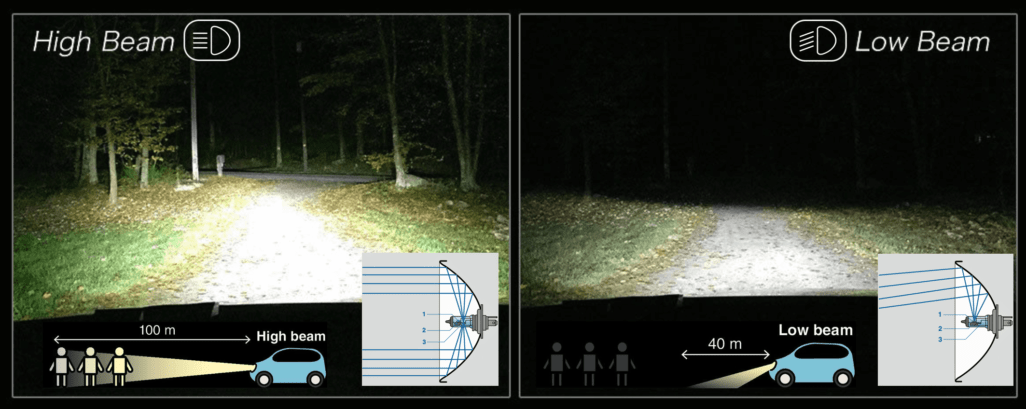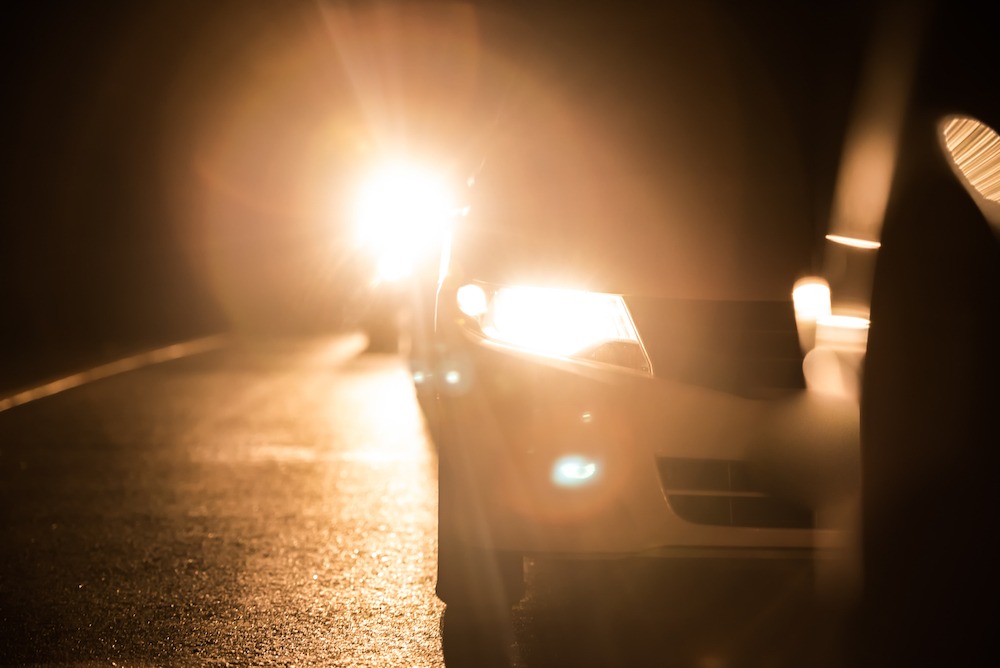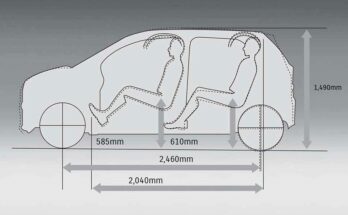High-beam headlights are basically a safety device installed in all cars which is supposed to illuminate the path ahead to a much greater distance. Interestingly however, according to a study by the Insurance Institute for Highway Safety (IIHS), less than half of all drivers use their high beams mistakenly thinking they can see well enough without them.
Related: Reflector vs Projector Headlamps
While the above study reflects the driving behavior of those living in the West, it’s the complete opposite in our part of the world. People tend to drive their cars always on high beams making lives miserable for others on the road. Correct use of high-beam and low-beam headlights is a simple way of improving safety, not only for oneself but for others as well.
What are High Beams?
A high beam gives you the option to make your headlights brighter, which is otherwise called a low beam in usual circumstances. In some cars, high beams use a separate bulb from low beam headlights. Other conventional bulbs contain two filaments in the same bulb: one for the main beam and the other for the low beam. When you switch your headlights to high-beam, they become brighter illuminating a larger area, allowing you to see more of the road ahead. This is extremely useful in some situations but can be painful for incoming traffic due to excessive brightness.
When to use High Beam
High-beam headlights are ideal when driving at night in a poorly-lit area. Your low beams are usually bright enough in the city, where there are plenty of streetlights, but may not be sufficient in sub-urban conditions. Without streetlights, it can be difficult to see far enough ahead to avoid obstacles like pedestrians, bumps in the road, or wild animals.
When not to use High Beam
Although high beams can help drivers on the open road at night, there are times when using high beams is unsafe, especially when there are other cars around.
High beams are so much brighter than low beams that they can dazzle other drivers. When passing, or driving behind another car, it’s always recommended to turn off your high-beam to avoid blinding others on the road.
Understanding Low Beam
Low-beam (dipped) headlights point toward the ground. They are designed to illuminate the road without shining in the eyes of other drivers. High beams, however, point straight ahead. This allows you to see farther ahead but can blind oncoming traffic. If you are trailing behind an already moving vehicle, the high-beam light can also reflect off the drivers’ rear-view mirrors and dazzle them.
Some Facts
Low-beam headlights light up the road for a distance of about 150-200 feet. According to the rules of the book, when you cannot see farther than 200 feet using low beams, you should switch to high beams, unless:
- Another vehicle is within 200 feet and approaching you from the opposite direction.
- Or you are less than 200 feet behind another vehicle.
High beams increase the visibility from 300 to up to 400 feet or more depending on the technology. Since they are twice as powerful as the low beams and point straight ahead instead of pointing toward the road, imagine how severely they can glare the upcoming motorists.
Rainy, Snowy or Foggy Conditions
Using high-beam headlights isn’t a good idea during the snow, rain, or fog either. The light from your headlights reflects off the moisture in the air and actually makes it harder to see. Even low beams can be chancy in the fog that’s why it is recommended to use fog lights.
High-Beam Assist Technology
Modern cars have a technology called high-beam assist. This feature automatically adjusts the headlights to the correct setting, so you do not have to do anything. Some cars can also detect an incoming car within a safe distance and can automatically switch to low-beam to avoid any hazard.
The Irony
It’s an irony that many people here use high-beam headlights in daily routine driving just to prove their supremacy on roads. Coupled with additional bright lights in fog lamp housings, this mindset behind blinding everyone else on the roads just because they have the ‘might’ is something that needs to be eradicated.
Related: Full-Beam Drivers In China Are Forced To Stare Into Car Headlights
Driving on high beams within the city is generally considered an offense and can result in a challan, but due to the ineffectiveness of our traffic laws, people tend to get away with this violation very easily.

A computer animation professional with over 23 years of industry experience having served in leading organizations, TV channels & production facilities in Pakistan. An avid car enthusiast and petrolhead with an affection to deliver quality content to help shape opinions. Formerly written for PakWheels as well as major publications including Dawn. Founder of CarSpiritPK.com

